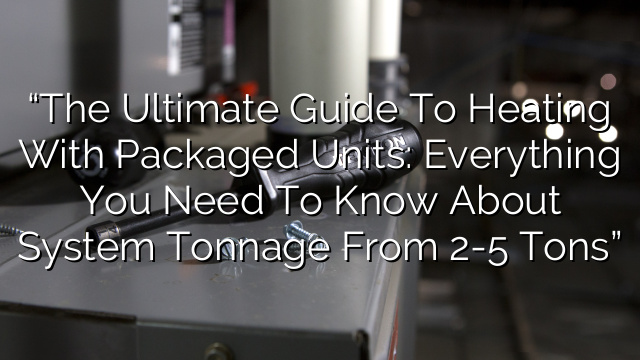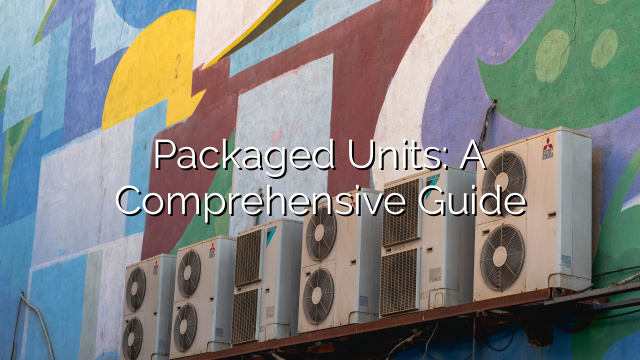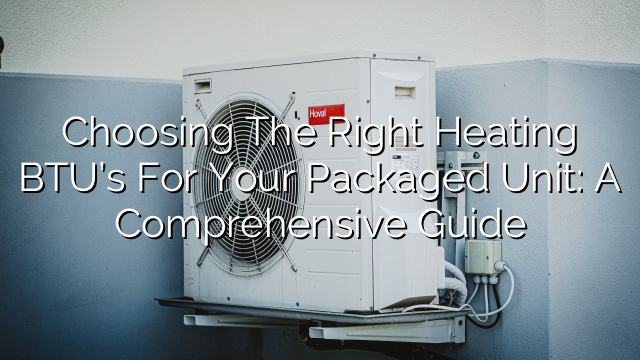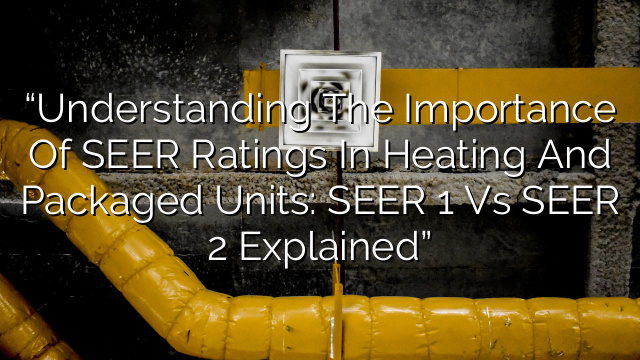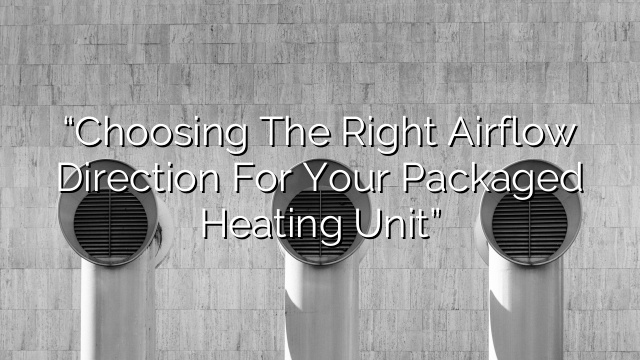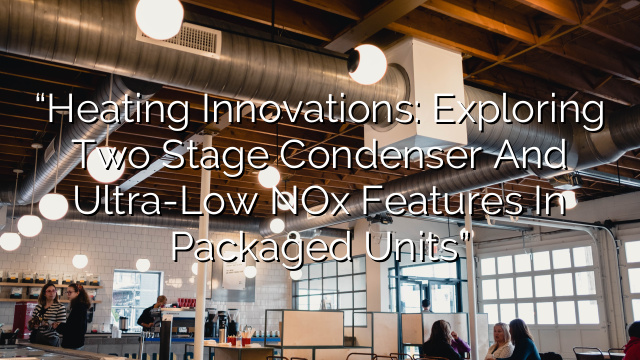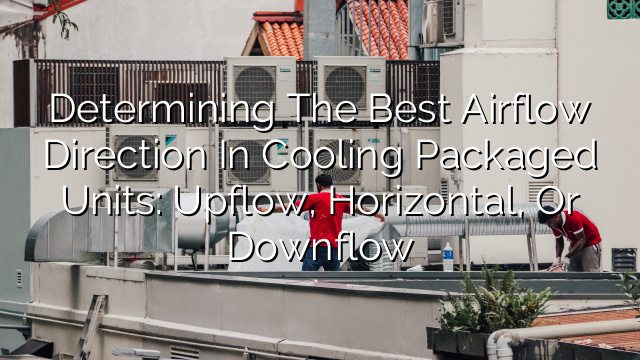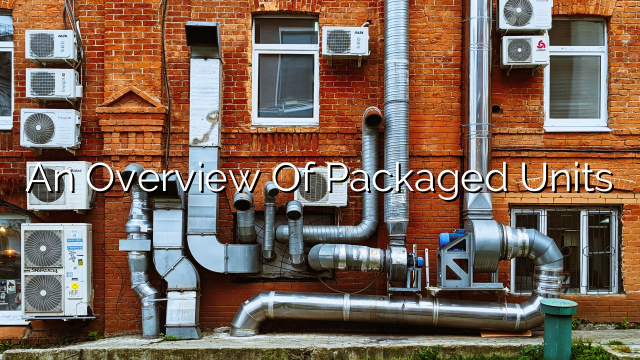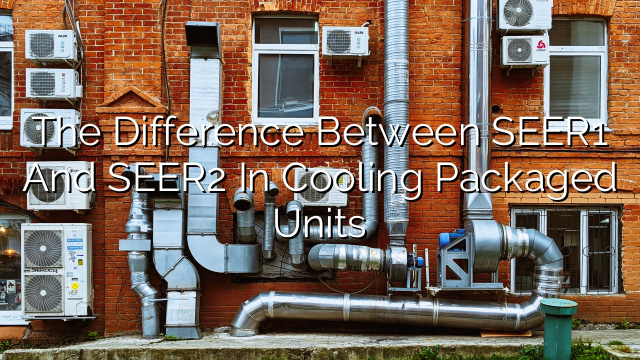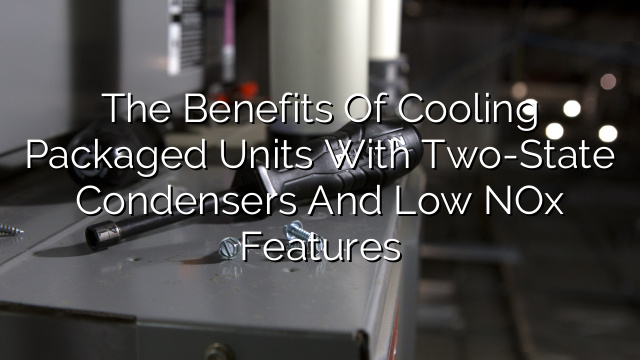Introduction
In the world of HVAC systems, packaged units are an increasingly popular choice for heating. These versatile units offer convenience, energy efficiency, and cost savings, all bundled into one neat package. One of the most important factors to consider when choosing a packaged unit is the system tonnage, ranging from 2 tons to 5 tons. In this guide, we will explore everything you need to know about heating with packaged units and the different system tonnages available.
Understanding Packaged Units
Before we dive into the specifics of system tonnage, let’s first understand what packaged units are and how they work. A packaged unit is an all-in-one heating and cooling system that is self-contained and installed outdoors. Unlike traditional split systems, which have separate units for heating and cooling, packaged units combine both functionalities into a single unit.
Packaged units are typically installed on the roof or the ground outside the building they are meant to heat or cool. They contain all the necessary components, including the compressor, evaporator coil, condenser coil, and heating elements, in one cabinet.
System Tonnage: What Does it Mean?
System tonnage refers to the cooling capacity of an air conditioning or heating system. It is a measure of how much heat the system can remove from the air in a given time. One ton of system tonnage is equivalent to the amount of heat that can be removed by melting one ton of ice in 24 hours.
When it comes to heating with packaged units, system tonnage affects how effectively the unit can heat the space. The higher the tonnage, the more heat the unit can provide. The most common system tonnages for packaged units range from 2 tons to 5 tons.
Choosing the Right System Tonnage for Heating
Choosing the right system tonnage for heating depends on several factors, including the size of the space you want to heat, the climate in your area, and the insulation levels in your building.
Here are some general guidelines to help you choose the right system tonnage:
- 2-Ton System Tonnage: Suitable for small spaces, such as individual rooms or small apartments.
- 3-Ton System Tonnage: Suitable for medium-sized spaces, such as small houses or offices.
- 4-Ton System Tonnage: Suitable for larger spaces, such as small commercial buildings or larger houses.
- 5-Ton System Tonnage: Suitable for larger areas, such as larger commercial buildings or big houses.
It’s important to note that these are general guidelines, and other factors, such as insulation levels and climate, can influence the required system tonnage. It’s always best to consult with an HVAC professional to determine the ideal system tonnage for your specific needs.
The Benefits of Different System Tonnages
Each system tonnage has its own set of benefits, depending on the space and heating requirements. Let’s explore the benefits of each system tonnage:
- 2-Ton System Tonnage: Ideal for small spaces with minimal heating requirements. It offers energy-efficient heating without compromising on performance.
- 3-Ton System Tonnage: A versatile system tonnage that provides efficient heating for medium-sized spaces. It strikes a balance between energy efficiency and heating power.
- 4-Ton System Tonnage: Suitable for larger spaces with higher heating demands. It delivers powerful heating while maintaining energy efficiency.
- 5-Ton System Tonnage: Offers robust heating capabilities for large areas that require a significant amount of heat. It is perfect for commercial buildings or spacious residential properties.
FAQs
Q: How do I determine the system tonnage for my heating needs?
A: It is best to consult with an HVAC professional who can assess your space, insulation levels, and heating requirements to determine the ideal system tonnage.
Q: Can I install a larger system tonnage than what is recommended for my space?
A: Installing a larger system tonnage may lead to an inefficient system that cycles on and off frequently, causing temperature fluctuations and increased energy consumption. It is always best to follow the recommendations of an HVAC professional.
Q: Are higher system tonnages more energy efficient?
A: System tonnage does not directly correlate with energy efficiency. The energy efficiency of a packaged unit depends on various factors, such as the unit’s SEER rating, insulation levels, and the climate in which it operates.
Conclusion
Heating with packaged units is an excellent choice for many residential and commercial spaces. By understanding the different system tonnages available, you can choose the right heating capacity for your specific needs. Whether you require a 2-ton unit for a small room or a 5-ton unit for a large commercial building, there is a system tonnage that will suit your requirements. Remember to consult with an HVAC professional to determine the ideal system tonnage and ensure optimal heating performance in your space.

